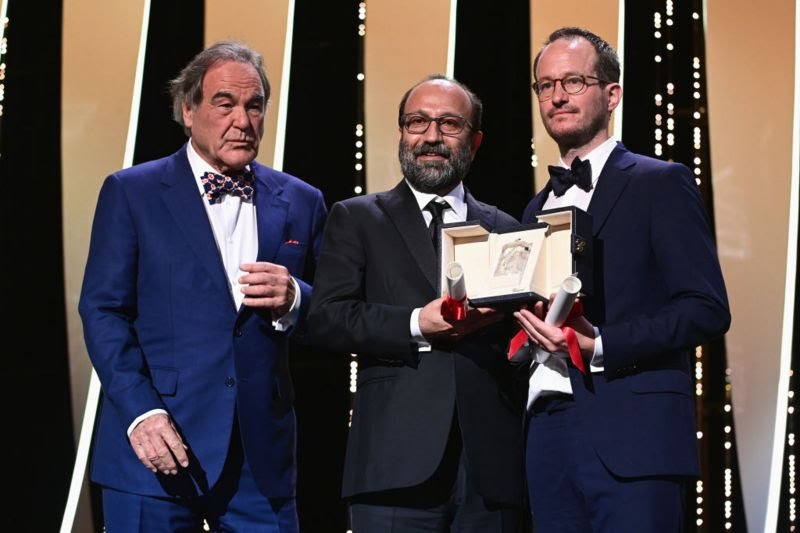Farhadi jointly won the award along with Finnish director Juho Kuosmanen’s “Compartment No. 6.”.
In his speech after receiving the award from eminent American filmmaker Oliver Stone, Farhadi said he has not stopped making films in the past 36 years despite all the restrictions with the hope of raising questions about the bitter social conditions of Iran.
He also expressed hope that he would be able to continue his career as he is confident that awareness-raising is one of the most important ways to save Iran.
Farhadi’s latest film, A Hero, received a five-minute standing ovation in its world premiere at the Cannes Film Festival a few days ago.
The film is a social drama about moral dilemmas and the alacritous flexibility of principles.
The auteur focuses on his usual themes, holding up a mirror, and offering his viewers glimpses into the psyche of contemporary Iranian society.
The brilliant performances of actors and Farhadi’s engaging script have received critical acclaim since its premiere.
The drama delivers a tale about ethics and integrity, and how they clash with each other when personal stakes are greater.
Shot during the pandemic in Shiraz and readied in time to debut at Cannes, the distribution rights of A Hero have already been scooped up by Amazon, and it is expected to drop on Prime video soon.
The soft-spoken and affable Rahim (Amir Jadidi) is out on parole from his prison sentence. A separated man with a son with speech impediment who lives with his sister’s family, he has defaulted on his debts that sent him to prison. But if he can manage to pay off his debts, he can avoid spending the rest of the years of his punishment in jail. He may have found a way out: his girlfriend Farkhondeh (Sahar Goldust) recently stumbled upon a lost handbag with some gold coins that she wants to sell to raise money for Rahim’s debt repayment.
But when the couple consult with a pawn broker, they realise the money may simply not be enough for a prison bailout. Rahim has a change of mind, and wants to return the coins. When the prison officials get wind of Rahim’s deed after the bag is returned to its owner, they milk it to their benefit to distract public scrutiny of a prison death. Rahim is now forced to pretend he found the handbag, and the news gets picked up by local media that even prompts a charity to organise a fundraiser for his bailout.
But things quickly go south when the disbelieving creditor raises doubts about Rahim’s story, over and above questioning the prudence of honouring Rahim for a deed that is only ethical and commonplace. Now, Rahim must convince his skeptical potential employer that his tale is indeed true, over and above getting hold of the funds raised by the charity that he is at risk of losing. In another director’s hands, things may have been different but this is Farhadi so the protracted drama unspools further with episodes in which Rahim takes one bad step after another, pushing him further away from his liberation.
